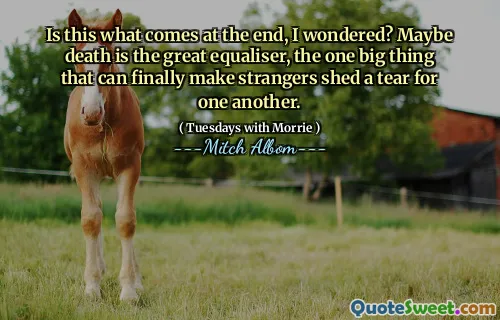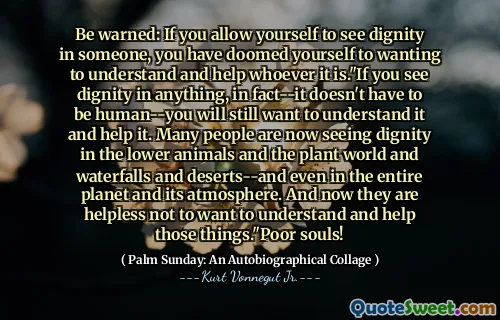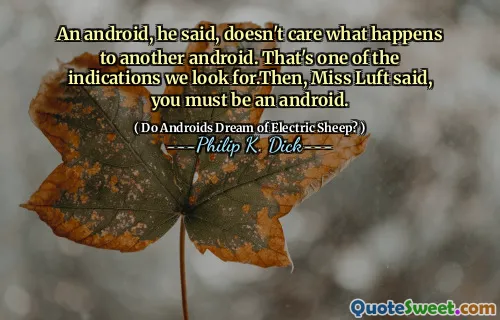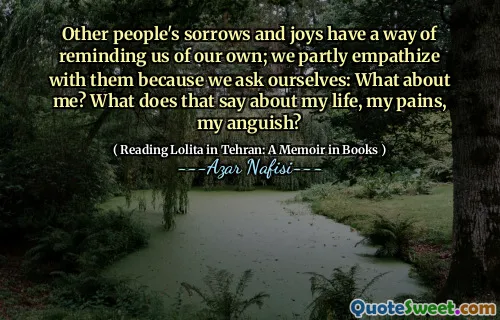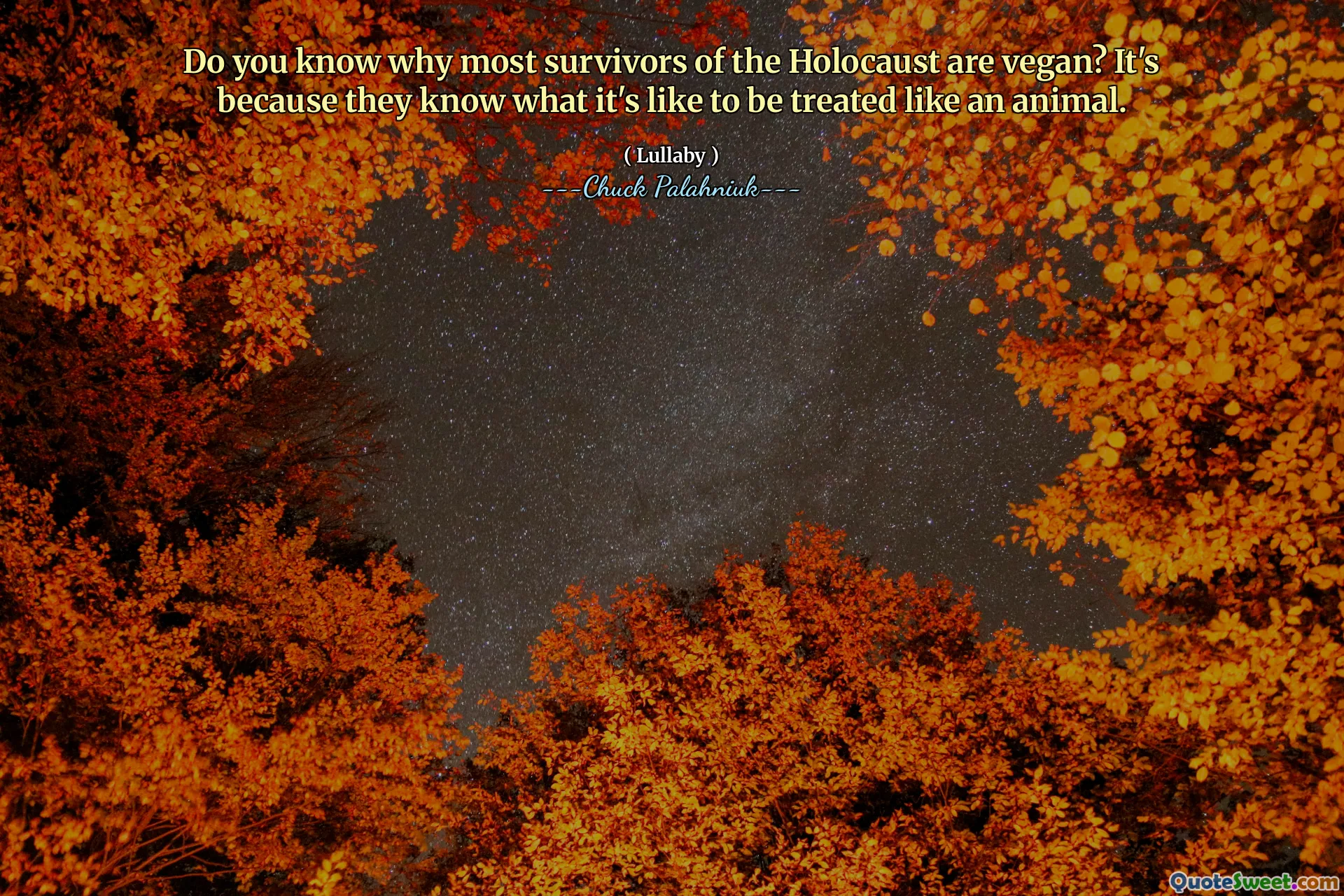
Do you know why most survivors of the Holocaust are vegan? It's because they know what it's like to be treated like an animal.
This quote offers a profound and poignant commentary on empathy, trauma, and the connections between human experience and ethical treatment of animals. It suggests that those who have endured extreme suffering, such as Holocaust survivors, develop a deep understanding of cruelty and mistreatment. Having faced unimaginable horrors, survivors may become more sensitive to the suffering of other beings, including animals, leading some to adopt a vegan lifestyle as an extension of their compassion and desire to prevent further suffering.
The comparison made in this quote underscores the importance of empathy as a bridge that can connect human experiences of pain with the suffering of non-human animals. It prompts us to consider how personal trauma shapes our values and ethical choices. Survivors, having experienced dehumanization, may intuitively recognize the parallels in the way animals are often treated in factory farms and other circumstances. Their choice to be vegan becomes not only a moral stance but also a healing and empowering act, reclaiming agency by rejecting violence.
The broader implications of this insight invite us to reflect on how empathy can broaden our perspectives beyond immediate human concerns. It challenges us to recognize the common ground of suffering and to regard all sentient beings with compassion. While individual choices vary, the quote makes a compelling case for understanding and kindness as essential elements of a humane society. Ultimately, it speaks to the universal power of empathy to foster change, urging us to consider how our actions affect others and highlighting the deep interconnectedness between human history, personal trauma, and philosophical ethics.


